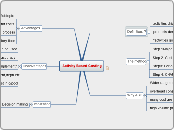によって anisah mahmood 17年前.
773
Activity Based Costi
ABC is where cost is attributed to cost unit based on the cost unit usage of activity

によって anisah mahmood 17年前.
773

もっと見る
ABC is where cost is attributed to cost unit based on the cost unit usage of activity